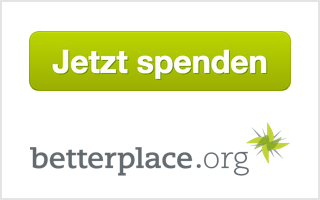Vision of Haskey-Project Ghana

Haskey-Project Ghana aims to contribute to a Ghanaian society
where people with disabilities are included as anyone else anbd are seen as equal and respected members of their communities. We want to reduce stigmatization and discrimination of people with
intellectual disabilities and work against mythical conceptions. It is our aim to educate the public as well as the concerned families about occurence and medical facts of intellectual
disabilities and counsel them on different possibilities of support for disabled people. Haskey wants to raise awareness throughout society to combat prejudice and to make people aware of the
capabilities and possible contributions of persons with disabilities.
It is the vision of Haskey-Project to enable people with disabilities to become fully accepted and participating members of society. Therefore it will focus on opening the project to the local community and enhance exchange. The idea of Haskey-Project is integrative; it wants to provide an environment where children and young adults with and without disabilities can learn from each other and overcome prejudice for future generations.

Our Mission
In Kumasi, Haskey-Project Ghana wants to establish a centre where parents may receive counseling and support as well as therapeutic and educational care for their children.
A day care with special educational care is planned as well as workshops for young adults where they can be trained according to their abilities. Moreover Haskey wants to work ambulant with concerned families to counsel, canalize help and make sure the support starts as early as possible.
Haskey Centre
The described location in Buobai is meant to be a temporary solution and it is built on the private ground of the Haskey-Project founder. Haskey-Project owns a land of 2 hectare in Parkoso, Kumasi where the actual centre is planned to be established as soon as there are enough funds to start building. This centre will host the Day Care, a workshop for young adults, an information and counseling centre as well as a small farm. A guesthouse for visitors or volunteers from abroad is also part of the plans.
Workshop for young adults with disabilities (scheduled)
In the workshop, young adults with intellectual disabilities will be educated in different handcrafts like creating jewellery out of beads or doing traditional „tie and dye“; they will be trained in functional skills like housekeeping and self-care and they can get the opportunity to work on the farm, in the kitchen or in the guesthouse. Haskey-Project will create this workshop in a dynamic and open way and plans to bond very close to the local community. It is desired to establish cooperations and provide workplaces for the clients outside the Haskey-Centre on a long-term view.
The purpose of the workshop is to enable young people with intellectual disabilities to explore their capabilities and find a work they like and they are able to do. It will help them to see themselves as useful and contributing members of the society and will also make their families become aware of their children‘s abilities. The acquired skills will also help the students to be able to care for themselves in their future lifes.
Haskey-Project Day Care in Buobai is already hosting some young adults and will start with a small workshop program under its roof which can be continued and extended if the actual workshop place is ready.
Ambulant family support and early intervention (scheduled)
Another important pillar of Haskey-Project is ambulant family support and early intervention. Through early provision of information and organization of help and medical or social support their work can have a preventive function. All members of Haskey/Project are Ghanaians and therefore they have the same cultural background. This will make it possible to be on one hand sensitive for regional conceptions and beliefs and on the other hand to raise awareness and to educate the public as well as the concerned families about occurrence and medical facts of intellectual disabilities and about the rights and capabilities of these people. This will help to prevent discrimination and stigmatization of disabled children inside their families or neighborhoods rather than to intervene against it later.
Early assessment and intervention in form of therapy, medical treatment and physical and cognitive stimulation can also prevent a disabled child from more developmental delay and have a positive impact on its further development. It will help him to develop his resources and to live his life as normal as possible. If possible the family should be always supported and the necessary help should be given to send their child to a regular school since this is the best way to prevent social exclusion of persons with disabilities.

Haskey-Projekt Ghana e.V.
Geschäftsstelle:
Overlackerstraße 20
44892 Bochum
Mobil: +4915771403833
Mobil: +4915779393190
GLS Gemeinschaftsbank
Bochum eG
IBAN: DE82 4306 0967
4031 7766 00
BIC: GENODEM1GLS
Steuernummer: 306/57951083
